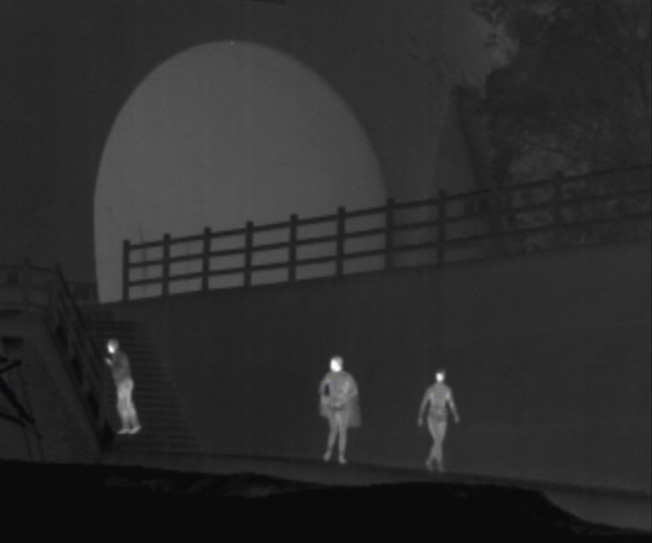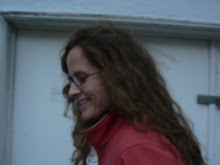 Last night the old man and I watched The Cove, a suspenseful and thrilling documentary centered around a group of activists' fight to end dolphin capturing and killing in Taijii, Japan. The group's bravery and their devotion to these animals is quite extraordinary. They risk their lives to install hidden cameras (one underwater) and microphones into a cove used as a killing floor, if you will, for slaughtering dolphins. I am afraid to swim in water past my neck and the only time I was in the ocean at night, while night kayaking to see bioluminescent lichen, I almost had a heart attack. So I am deeply impressed by the freedivers who braved the night waters.
Last night the old man and I watched The Cove, a suspenseful and thrilling documentary centered around a group of activists' fight to end dolphin capturing and killing in Taijii, Japan. The group's bravery and their devotion to these animals is quite extraordinary. They risk their lives to install hidden cameras (one underwater) and microphones into a cove used as a killing floor, if you will, for slaughtering dolphins. I am afraid to swim in water past my neck and the only time I was in the ocean at night, while night kayaking to see bioluminescent lichen, I almost had a heart attack. So I am deeply impressed by the freedivers who braved the night waters.
Throughout the film several points were made about how intelligent dolphins are, but the one that was most profound was the fact that dolphins understand sign language... but they don't even have hands. I never really thought about that one before, what an impractical yet sophisticated ability it is for a dolphin to be able to communicate with people in this way. It's devastating to watch something get speared to death, to see the cove turn red with blood (ew, which one of the fishermen has to dive in to make sure they got all the dolphins), to watch dolphins flapping ferociously in the water, screaming until they die.
The fact of the matter is that nothing or no one should be rounded up and killed. After the movie was over, I felt a little conflicted. What about cows? It's not okay for cows to be rounded up, shipped half across the country, standing in their own feces for weeks, and being forced to eat something their four stomachs have trouble digesting. If we all watched The Cove version of the cattle industry, watched a huge five hundred pound animal crawling to the kill floor on weak, unused legs bent in the opposite direction, would we allow this to continue to happen in our own country? It's weird to go to another country and point out their shames when we have so many of our own. In the early 1700's and until about 1850, whaling was one of the prominent industries in America. Let us not forget that New Bedford, Massachusetts was known as "The City That Lit The World." Do you think we stopped whaling because we felt bad for whales? No! The demand for their oil plummeted after the invention of oil wells.
The question of activism remains: why anything? Why dolphins? Why healthcare? I thought I'd be doing some good by not eating meat, but shit. I knit with wool. I wear leather. My pants and my warm winter coat were made by someone who didn't earn a livable wage. My list of sins goes on. I want to try; I go to health care rallies and stuff like that, but feel like while I'm standing up for one thing, something else is coming apart. Do you think The Cove is going to change the fishing industry? Some people say there was so much media in Taijii that the dolphin hunting has stopped. I wonder for how long. Paul Watson made an interesting point in the film: you can be active or inactive. But how do you know if you've done any good?





2 comments:
My friend, Julia, the one you met at the reading raved about The Cove, I just got it in on Netflix and will watch it soon!
It really is quite an extraordinary and well-filmed documentary. Good luck watching, Steven!
Claire Hero sent this to me, so I thought I'd put it up here to see what y'all thought:
Problems like these always give me pause. I don't eat meat, but thousands of birds die so that I can drink wine. We are always complicit in systems of power & exploitation. Carol Adams discusses this problem in her work on feminism and animal rights, and Adams quotes Jane Tompkins' observation that ‘to see animals differently would require human beings to see themselves differently also.’
For me, becoming a vegetarian was about recognizing my complicity in systems of power & understanding the consequences of my choices, rather than a question of doing good. One is never inactive; one is simply aware or unaware of the consequences of one's choices.
But I think works like this documentary do do some good. Some friends of ours just read Eating Animals and have become pescatarians; they responded to Foer's take on the subject as a parent. Often, it seems, it's a matter of finding the right angle, the one that makes the person see their own behavior in a new light. I know it was sure like that for me.
Anyway, I can empathize with that awful feeling of guilt & helplessness, so I wanted to respond.
Post a Comment